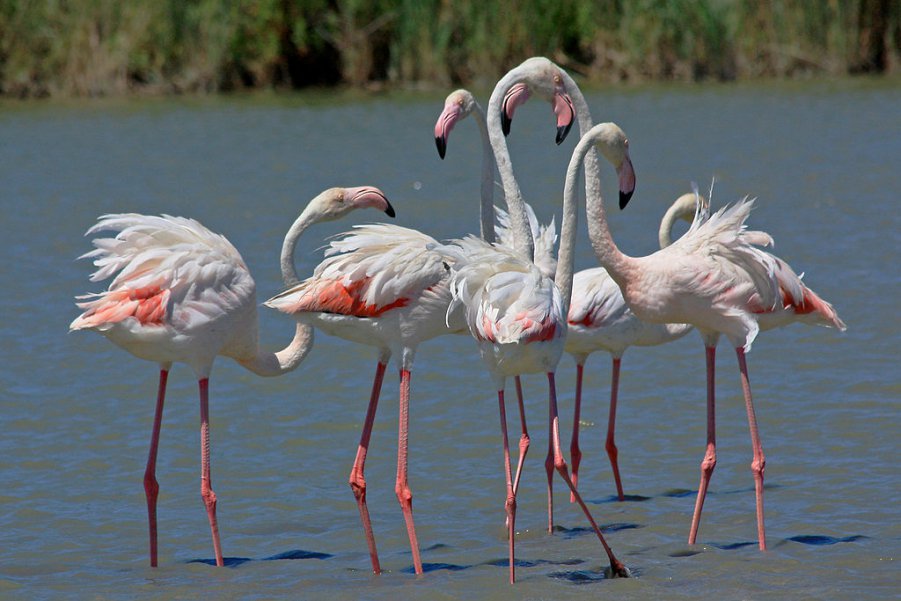
This day has been celebrated worldwide since 1997.
The date for the celebration of this day was not chosen by chance: on this day, February 2, 1971, in the Iranian city of Ramsar (Mazenderan Province) the “Convention on Wetlands” was signed. This document is better known as the Ramsar Convention.
The “Convention on Wetlands” was signed with the aim of protecting wetlands of international importance (mainly as habitats for waterfowl).
In May 16, 2018, 170 states are parties to this convention, in whose territory there are 2,307 wetlands of international importance with a total area of 228.9 million ha. One of the conditions for joining the Ramsar Convention is having of at least one “Ramsar site” on the territory of the country that plans to join it.
The Ramsar Secretariat is currently located in Geneva, Switzerland.
There are 21 Ramsar wetlands In Central Asia: Kazakhstan - 10, Uzbekistan - 2, Kyrgyzstan - 3, Tajikistan - 5, Turkmenistan - 1.
Wetlands are unique productive ecosystems. Wetlands are extremely important sources of water resources with environmental functions unique to them. They support human well-being and balance natural processes in the environment. Wetlands in the arid region of Central Asia, represented by rivers, lakes, reservoirs, ponds and their other types, are irreplaceable water resources and centers of biological diversity. They include land and water components and serve as a habitat for many animals, especially waterfowl. In addition to the conservation of biodiversity, wetlands perform other important functions: they are sources of fresh water and regulate the hydrological regime; stabilize the climate and store carbon; serve as natural protection against droughts and floods; feed and represent a source of livelihood for the local population; have a high recreational, historical, scientific and cultural value. Unfortunately, the awareness of the need for protection and sustainable management of wetlands comes with a violation of their environmental functions, due to serious threats of anthropogenic nature.
In this regard, it is especially important that local communities living on the wetlands understand the value of these ecosystems and participate in their sustainable use. The role of wetlands in natural processes and in community life is extremely large and diverse. Today everything needs to be done to preserve fresh water, maintain the level of groundwater, keep under constant control the regulation of surface and underground drains, keep the coast from degradation and soil from erosion, and maintain biological diversity.
To explain this to people, in particular, to villagers, farmers, the local community and local government representatives, awareness-raising works are being carried out through social networks, promotions, surveys, etc.
In order to support the work through national experts in the Central Asian region, the Ramsar Secretariat has allocated a small grant for the implementation of the project called “Ramsar Regional Initiatives in Central Asia”, Technical Secretariat of which is CAREC. You can learn more about the Initiative here.
Each of us contributes to the conservation of biodiversity and Wetlands Day is a celebration for everyone who knows about the results achieved to date.
World Wetlands Day is widely celebrated around the world. Everyone can post information about their event dedicated to this day on the website www.worldwetlandsday.org/map.
